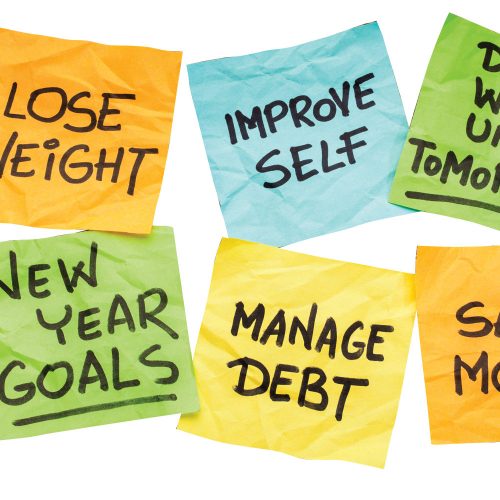
I’m on record (probably many times) saying I dislike the idea of New Year’s resolutions.
We tend to make grand plans, go in all guns blazing and super-keen in January and then, gradually, run out of steam, usually by about the end of February.
There are several reasons for this. Top of the list, I reckon, is that we tend to make resolutions that are just not achievable. When we set a too-difficult goal, we pretty much set ourselves up to fail. Weight-loss resolutions tend to fall into this category. ‘Lose 10kg’ might be a good goal, but is it really realistic and achievable? Might it be better to choose something a bit more modest — and in this case, how about not losing weight, but gaining health?
‘Get healthy’ is not a good resolution either. That’s because it is not specific. If it’s not specific, how will we know when we achieve it?
And that’s another reason resolutions don’t stick. If you can’t measure your goal, there’s no way to know how you’re going in working towards it or, of course, when you’ve achieved it.
Timing is another consideration. It might just be my personality and the type of work I do, but giving me a deadline is a sure-fire way to get me to deliver. Many people work the same way. Saying ‘I want to run a half marathon’ is nice, but ‘I will run a half marathon on 1 September’ is probably more likely to get you motivated.
So, given that most of us will have lost impetus and abandoned our New Year’s resolutions before March rolls around, I think we are better off thinking a bit more carefully, and thinking about small changes we can make, that we will be able to stick to for life.
Life? I can hear you groaning from here. But really, healthy habits are only going to be good for us if we can commit to them for life. Getting healthy is a journey, not a destination. There will not come a day when we say ‘Right, I’m healthy now. I’ll just stop doing what I’ve been doing and go back to what I used to do’. Anyone who’s ever been on a diet — one where you go ‘off’ the diet at the end — knows where that kind of thinking leads. It’s why most dieters regain the weight, and then some.
Habits you can stick to for life are the way to go. Small, achievable things — like adding an extra serving of veges to your plate, or eating breakfast — can set you up for long-term gains.
Don’t forget that new habits take time to form, but eventually they can become routine. For me, becoming a regular gym-goer was like this. At first the idea of showing up at the gym three times a week seemed such an effort. How could I do this every week? But after a month or so of conscious effort, it just became part of my life. Yes, sometimes it feels a bit like hard work. But knowing the benefits I get and how good I’ll feel after a workout is usually enough to get me there.
Think about what you want to achieve this year in terms of how you want to feel at the end of it. Keep in mind that lots of small things can add up to sustainable, long-term change.
Resolutions that can become healthy new lifetime habits
Looking for inspiration? Think about adding one or two of these habits to your life.
- I will eat a balanced breakfast every day.
- I will eat two big handfuls of colourful vegetables every day.
- I will include an extra vege serve in my lunch and in my dinner every day.
- I will have at least three alcohol-free days each week.
- I will swap my white/wholemeal bread for grainy bread.
- I will add an extra serve of dairy to my day.
- I will make water my main everyday drink.
www.healthyfood.com










